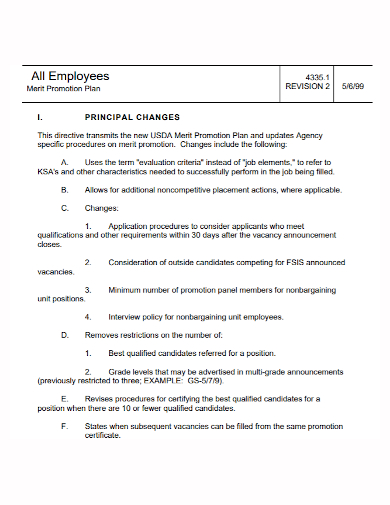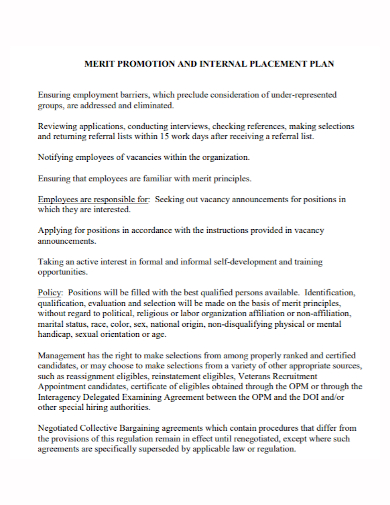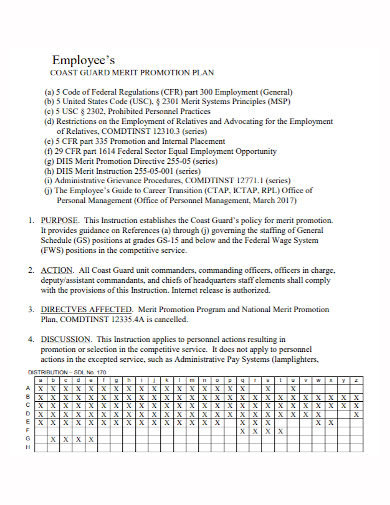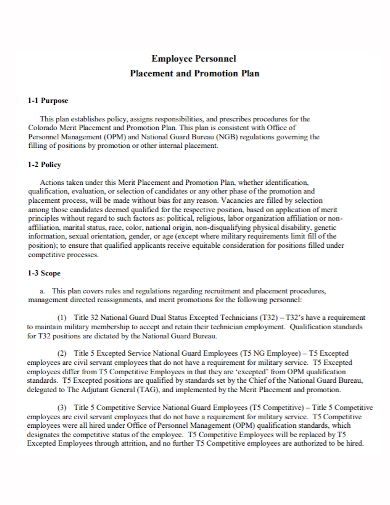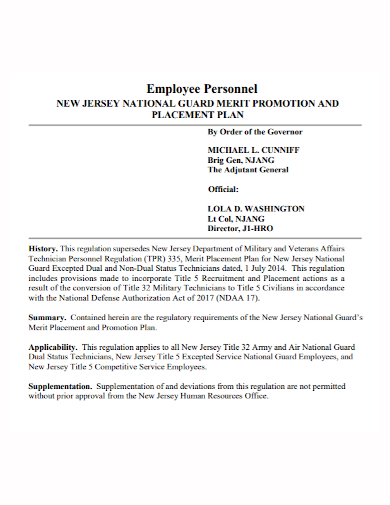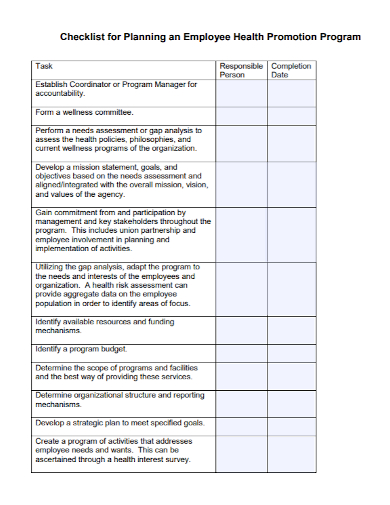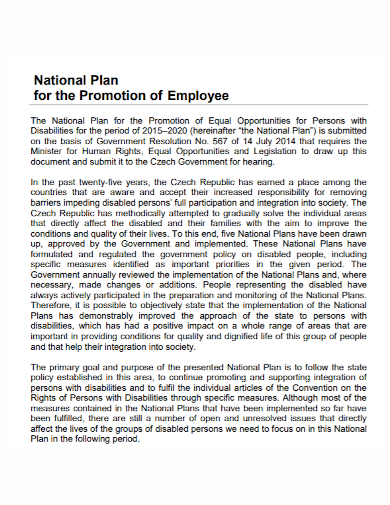If you haven’t already examined which of your staff might be ready for promotion, now is the time to do so. Remember that seasoned talent from outside the organization is uncommon, therefore it’s important to invest as much time as possible in developing your present employees. Companies that do this successfully earn more money than those that do it poorly. What goes into an employee promotion plan, exactly? Traditionally, succession planning was limited to important leadership roles. It is critical to include crucial positions in a number of job categories and levels, such as technicians, foremen, supervisors, and managers, in today’s enterprises.
What does it mean to promote an employee? The term “employee promotion” refers to an employee’s advancement through the ranks. It entails a rise in compensation, position, duties, status, and benefits, among other things. This component of the job is the most motivating for employees—it is the ultimate reward for devotion and loyalty to a company.
A promotion, in theory, necessitates greater work and effort in the workplace. These promotion-based decisions are made on many elements depending on organizational policies. These factors could include duration of service, experience, seniority, and performance, among others.
7+ Employee Promotion Plan Samples
1. Employee Promotion Plan Template
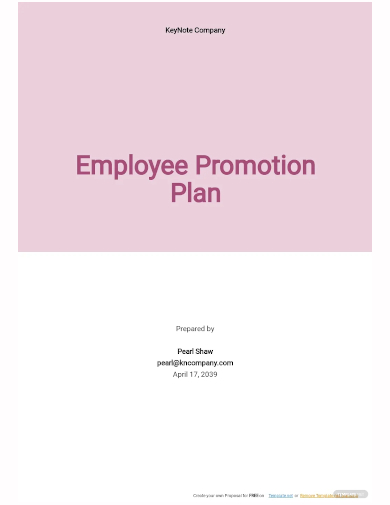
2. Employee Merit Promotion Plan
3. Employee Promotion Placement Plan
4. Sample Employee Promotion Plan
5. Employee Personnel Promotion Plan
6. Employee Merit Promotion Placement Plan
7. Employee Health Promotion Program Plan
8. Standard Employee Promotion Plan
Factors Before Promoting an Employee
- Benchmark the job necessary competencies to create a profile of important positions.
- Determine current employees’ skills and experience.
- Determine who in the organization is qualified for advancement. It is ideal to have more than one qualified worker available for a critical position. When there are two or more qualified candidates to choose from, success is more likely.
- Encouraging staff to attend workshops and/or seminars, either individually or as a group, is a great way to help them grow. Encourage them to share what they’ve learned with the rest of the firm and how it can help them. They aren’t promotion material if they aren’t willing to grow.
- To determine their prospects of success in a management role, the individual should be required to interview with senior management and be put through the wringer to separate behavioral traits that will indicate how they would handle various management scenarios. To identify the degree to which the employee matches the profile of a manager, professional assessment tools should be used.
- Before you grant the applicant a promotion, have them participate in leadership tasks to observe what kind of results they can create. In contrast to a sink-or-swim approach, job assignments prepare individuals for their new employment.
- Make sure that everyone in your company is aware of the promotion criteria. Then, whether informal annual assessments or on an ongoing basis as the situation necessitates, keep an eye on how personnel matches up. Encourage your employees to nominate others in the firm who they believe fulfill the criteria. It’s critical to have open communication on a regular basis so that everyone is aware of where they stand at all times. Annual reviews are a wonderful chance to talk about potential promotions and reaffirm criteria. It also allows employees who do not want to be promoted to express their dissatisfaction in a non-embarrassing manner. Not everyone aspires to be a leader, and not everyone can advance.
- Use meaningful employee appraisals and feedback to track the success of individual participants.
- Recognize where there are talent shortages or gaps and fill them as soon as possible.
- Make sure your incentives and bonuses are directly linked to the promotion’s parameters. People will not consider the parameters to be meaningful if they are not evaluated and compensated in this manner.
FAQs
What are the benefits of employee promotion?
It involves expectation, reduce attrition, motivation and productivity, cost-efficient, career growth, needs to management, and rewards and recognition.
What do you need to consider when promoting an employee?
You have to consider the role, appraisal, emotional intelligence, performance review, and company culture.
What does a succession planning involves?
Understanding the organization’s long-term goals and objectives, determining the workforce’s developmental needs, determining workforce trends and predictions, being aware of current employees’ skills and experience, considering the impact of not promoting current employees, and analyzing the cost of recruiting and training are all part of the process.
Employee satisfaction is heavily influenced by employee promotion. It increases employee engagement, morale, and productivity by reducing absence and absenteeism. It’s also a useful tool for lowering retention attrition. Attrition has always been a major issue in all businesses. This problem can be solved by using proper performance reviews and employee promotions. Companies must promote deserving personnel at regular periods for the reasons indicated above. Promoting equals advancement, and progress is what matters most in the corporate world.
Related Posts
FREE 9+ 30-Day Marketing Plan Samples in PDF | MS Word | Apple Pages | Google Docs
FREE 3+ Sales Team Action Plan Samples in PDF | MS Word | Apple Pages | Google Docs
Marketing Plan For Small Business Samples
FREE 7+ Fashion Business Plan Samples in PDF
FREE 10+ Sprint Planning Samples In MS Word | Google Docs | PDF
FREE 10+ Wedding Planning Samples in MS Word | Apple Pages | Powerpoint | PDF
FREE 9+ Monthly Study Planner Samples in PSD | Illustrator | InDesign | PDF
FREE 9+ Sample Curriculum Planning Templates in PDF | MS Word
FREE 10+ Teacher Development Plan Samples in MS Word | Google Docs | Apple Pages | PDF
FREE 10+ Basketball Practice Plan Samples in PDF
FREE 12+ School Business Plan Samples in PDF | MS Word | Apple Pages | Google Docs
FREE 7+ Client Strategic Plan Samples in PDF | MS Word
FREE 11+ Trucking Business Plan Templates in PDF | MS Word | Google Docs | Pages
FREE 7+ Small Hotel Business Plan Samples PDF | MS Word | Apple Pages | Google Docs
FREE 14+ Bakery Business Plans in MS Word | PDF | Google Docs | Pages

